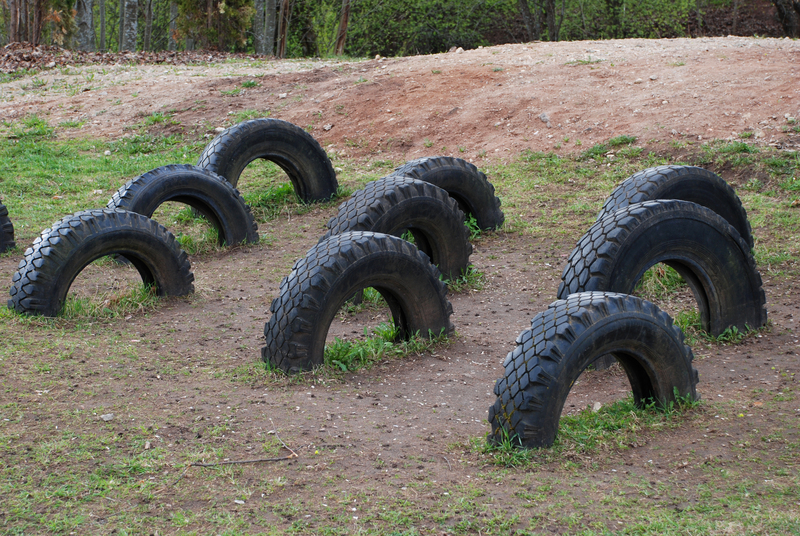Smart Ways to Cut Costs on Bulky Waste Items Disposal
Disposing of bulky waste items like old furniture, appliances, mattresses, and garden debris can be a daunting task--especially when you factor in the potential costs. Yet, with proper planning and innovative strategies, you can significantly reduce these expenses. This comprehensive guide provides smart ways to cut costs on bulky waste items disposal. We'll help you get rid of large, unwanted items efficiently, economically, and responsibly, all while keeping an eye on environmental impact and convenience.

Understanding Bulky Waste Disposal
Bulky waste refers to items that are too large to be collected via regular household garbage services. These often include:
- Sofas and couches
- Beds and mattresses
- Refrigerators and washing machines
- Wardrobes and storage units
- Large garden trimmings and tree stumps
The disposal of such items can incur hefty charges, especially if handled without a plan. Many municipalities charge extra, and specialized collection services can be expensive. That's why researching cost-effective bulky waste disposal strategies is essential.
Why Is Bulky Waste Disposal So Costly?
Before discussing how to save money, it's important to understand why disposing of large items often involves significant expense:
- Bulky waste is difficult to transport and handle due to its size and weight.
- Specialized vehicles and equipment are needed for collection and disposal.
- Waste processing centers may charge per item or by volume/weight.
- Environmental regulations require certain items (like fridges) to be treated specially, increasing disposal costs.
But with some strategic thinking, you can avoid unnecessary fees and even benefit from your unwanted items. Below are the best ways to cut costs when disposing of large and heavy waste.
1. Reuse and Repurpose Before You Dispose
The most affordable (and environmentally friendly!) method is to avoid disposal altogether. Before considering garbage services, evaluate whether your bulky item can be:
- Reused: Perhaps the item can serve another purpose in your home or garden with a little creativity.
- Upcycled: Convert old cabinets into garden sheds, or a worn-out sofa into a comfortable outdoor lounge.
- Fixed: Sometimes, a simple repair can restore the item's utility, saving you money and reducing waste.
Creative Upcycling Ideas
- Turn a wooden wardrobe into a children's play kitchen.
- Transform a damaged table into a stylish bench.
- Use mattress springs for unique garden trellises.
Not only does this save you the cost of bulky items removal, but repurposing also promotes sustainability.
2. Donate to Charity or Community Groups
Many charities, shelters, schools, and community organizations accept usable furniture and appliances. By donating, you:
- Divert unwanted items from landfill.
- Help those in need.
- Avoid disposal fees often charged by waste management services.
- May receive a tax deduction for your donation (check local regulations).
Where to Donate Bulky Items
- Local charity shops (e.g., Salvation Army, Goodwill, Habitat for Humanity)
- Online community groups (Facebook Marketplace, Freecycle, Nextdoor)
- Faith-based organizations
- Non-profit organizations for housing assistance
*Call ahead to confirm that your item is accepted and whether pick-up is available.
3. Sell or Give Away Through Online Platforms
Another excellent method to cut costs when removing bulky waste is by listing items on online platforms:
- Facebook Marketplace
- Craigslist
- eBay
- OfferUp
- Nextdoor
Either sell for a small fee or list as "free for collection." Many people are on the lookout for inexpensive or free furniture, appliances, and other large items.
Tip: List honestly. Note any damage, and include clear, high-quality photos to attract interest.
4. Utilize Municipal Collection Services Effectively
Most municipalities offer periodic bulky waste collection services--some are free or low-cost, especially for residents.
- Check your local council's website for scheduled collection days.
- Bundle items for collection to maximize allowed volume per pickup.
How to Save with Council Collections
- Book early: Some services need advance booking for pickups.
- Coordinate with neighbors: If your area allows sharing pickups, group items together to share the cost.
- Know the rules: Certain items (e.g., electronic waste, hazardous materials) may have special requirements or fees, so plan accordingly.
5. Drop-Off at Local Recycling Centers
Many towns have waste transfer stations or recycling centers that accept bulky waste items for free or a nominal fee. This is far cheaper than hiring a private removal service.
- Contact your local center to inquire about accepted items and fees.
- Plan your drop-off schedule to coincide with free or discount days.
- Some centers offer free appliance recycling due to environmental programs (e.g., for fridges or washing machines).
Tip:
- Combine trips: Gather all bulky waste and recyclable items to maximize each visit and save time and fuel.
6. Partner Up: Bulk Disposal with Neighbors
Sometimes, disposal companies offer better rates when more items are collected at once. By partnering with neighbors, you can:
- Share the cost of skip hire or private rubbish removal.
- Negotiate a group discount with waste removal services.
This approach is especially useful during spring cleaning, moving, or after storms. It's a simple yet smart way to lower your bulky rubbish removal costs.
7. Rent a Skip Bin (and Use It Efficiently)
For massive cleanouts, renting a skip bin may be unavoidable. However, be strategic to avoid wasted expense:
- Choose the smallest suitable size: Overestimating leads to paying for empty space.
- Pack efficiently: Break down furniture, flatten boxes, and nest items to fit more in the bin.
- Share with others: Ask neighbors or friends if they need to add items, splitting costs.
- Avoid prohibited items: Some skips don't allow certain waste (e.g., electronics, chemicals)--placing them inside could mean extra fees.
When used wisely, skip bins can be a cost-effective solution for large-scale bulky rubbish disposal.
8. Hire a Man and Van Service--But Compare Prices!
Professional "man and van" or rubbish clearance services provide labor and transport. These can be surprisingly affordable if you:
- Obtain quotes from multiple providers--don't just accept the first offer.
- Ask for price breakdowns: Some services charge by item, weight, or time.
- Consolidate everything to minimize collection trips and save on the per-load charge.
- Look for reviews and eco-friendly policies: Many modern companies recycle or donate items, reducing waste.
Comparing prices lets you get the best deal and avoid hidden fees associated with bulky waste removal services.
9. Look for Government or Manufacturer Take-Back Schemes
Certain goods (like white goods and mattresses) are often covered by take-back recycling schemes operated by either manufacturers or local government. These may include:
- Old appliance "clawbacks" when you buy a new item
- Mattress recycling initiatives subsidized by local councils
- Retailer removal services for used sofas or beds upon delivery of new purchases
- Electronic waste collection drives
These schemes frequently offer free or low-cost bulky rubbish collection as a value-added service.
10. Do-It-Yourself: Safe Self-Transport
If you have access to a suitable vehicle, you can transport bulky items yourself to the dump or recycling center. To save money and ensure safety:
- Borrow or rent a van: Some rental companies offer hourly rates for local runs.
- Ask friends or family for help with loading/unloading.
- Use tie-downs and padding: Protect your vehicle and ensure items don't shift during transit.
- Plan your route: Consider combining trips with other errands to save fuel and time.
This approach provides total control and often represents the cheapest way to dispose of large waste--if you can manage the lifting and transport safely.
11. Schedule Your Disposal Strategically
Seasonal events (such as spring clean-ups or after moving day) can lead to peak demand for bulky rubbish collection. By timing your disposal outside the busiest periods you can:
- Avoid inflated prices from private removal firms.
- Access better availability and possible discounts for off-peak bookings.
- Schedule your disposal to coincide with neighborhood collection drives.
Plan ahead whenever possible--it pays to be proactive!
12. Avoid Penalties and Extra Fees
It's essential to comply with your local laws and guidelines on waste disposal. Avoiding illegal dumping or improper disposal not only protects the environment, but also saves you from costly fines or cleanup charges.
- Read your city's bulky waste policies: Know which items are allowed, pick-up rules, and any restrictions.
- Arrange for proper handling of hazardous waste: Refrigerants, chemicals, and electronics usually require special disposal.
- Secure your load: Items falling from your vehicle en route to the dump may result in traffic fines or damage liability.
Environmental Considerations--Make Smart, Green Choices!
While cutting costs on bulky waste items disposal is important, so is protecting the environment. The best choices are those that:
- Minimize landfill use
- Encourage reuse and recycling
- Support community needs
- Avoid hazardous or illegal dumping
Opting for charity donations, take-back schemes, and recycling not only reduces disposal fees but also shrinks your ecological footprint.

Summary: The Smartest Strategies to Save on Bulky Waste Disposal
- Try to reuse, upcycle, or repair before disposing.
- Donate usable items to charity or through community networks.
- Sell or give away via online platforms.
- Use municipal or council services--often the cheapest and most convenient option.
- Recycle at transfer stations when possible.
- Team up with neighbors for discounts on bulk collections or skip bins.
- Research manufacturer and government take-back programs.
- Comparison-shop for removal services.
- If possible, handle safe DIY transport for direct drop-off.
- Schedule collections for off-peak or community event days.
- Avoid fines by following all regulations and proper disposal procedures.
Conclusion
By applying these smart ways to cut costs on bulky waste items disposal, you can save money, support your local community, and help the environment all at once. With a little creativity, collaboration, and research, disposing of your old, unwanted items doesn't have to break the bank. Take action today to make your home clutter-free--the smart, affordable, and eco-responsible way!
